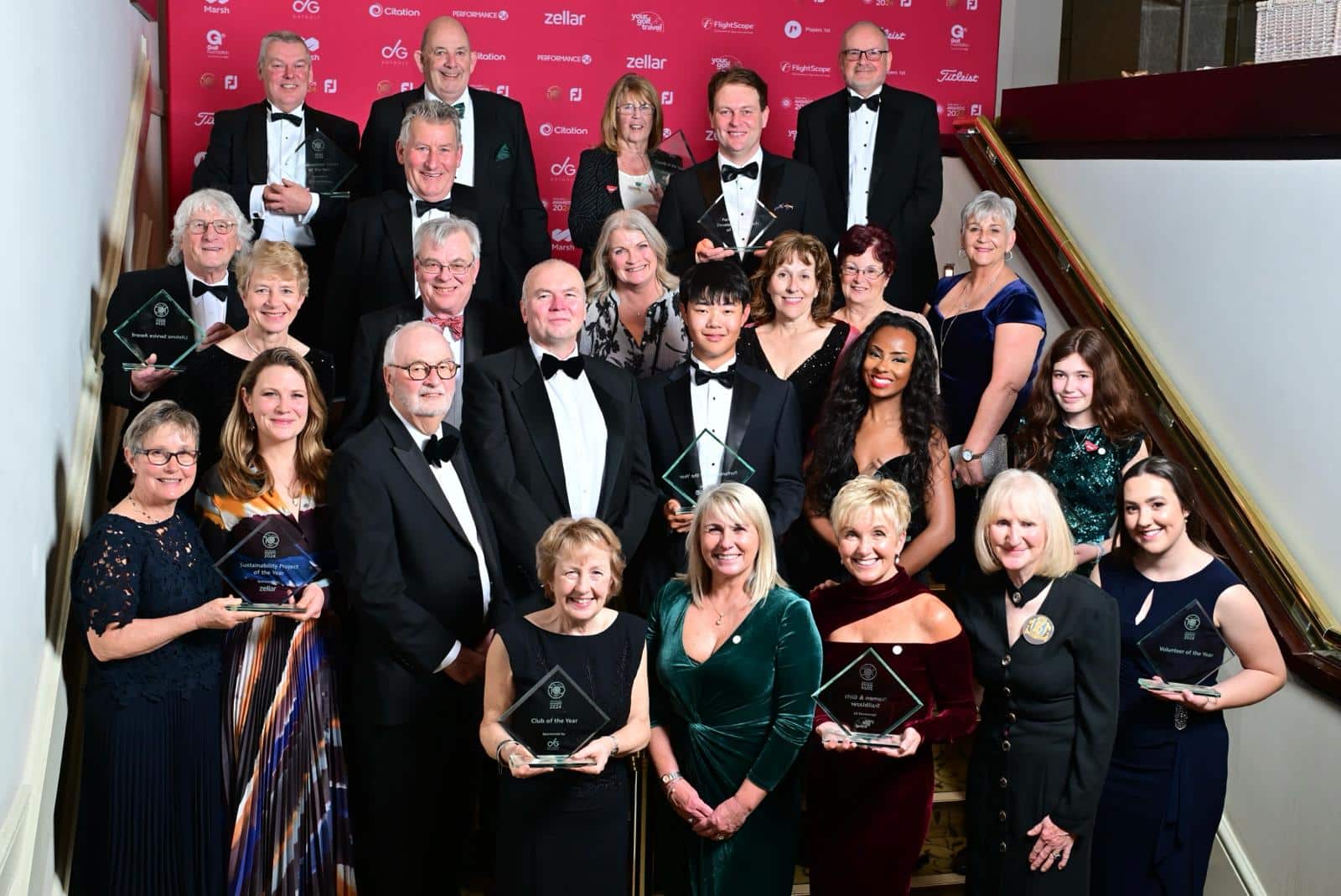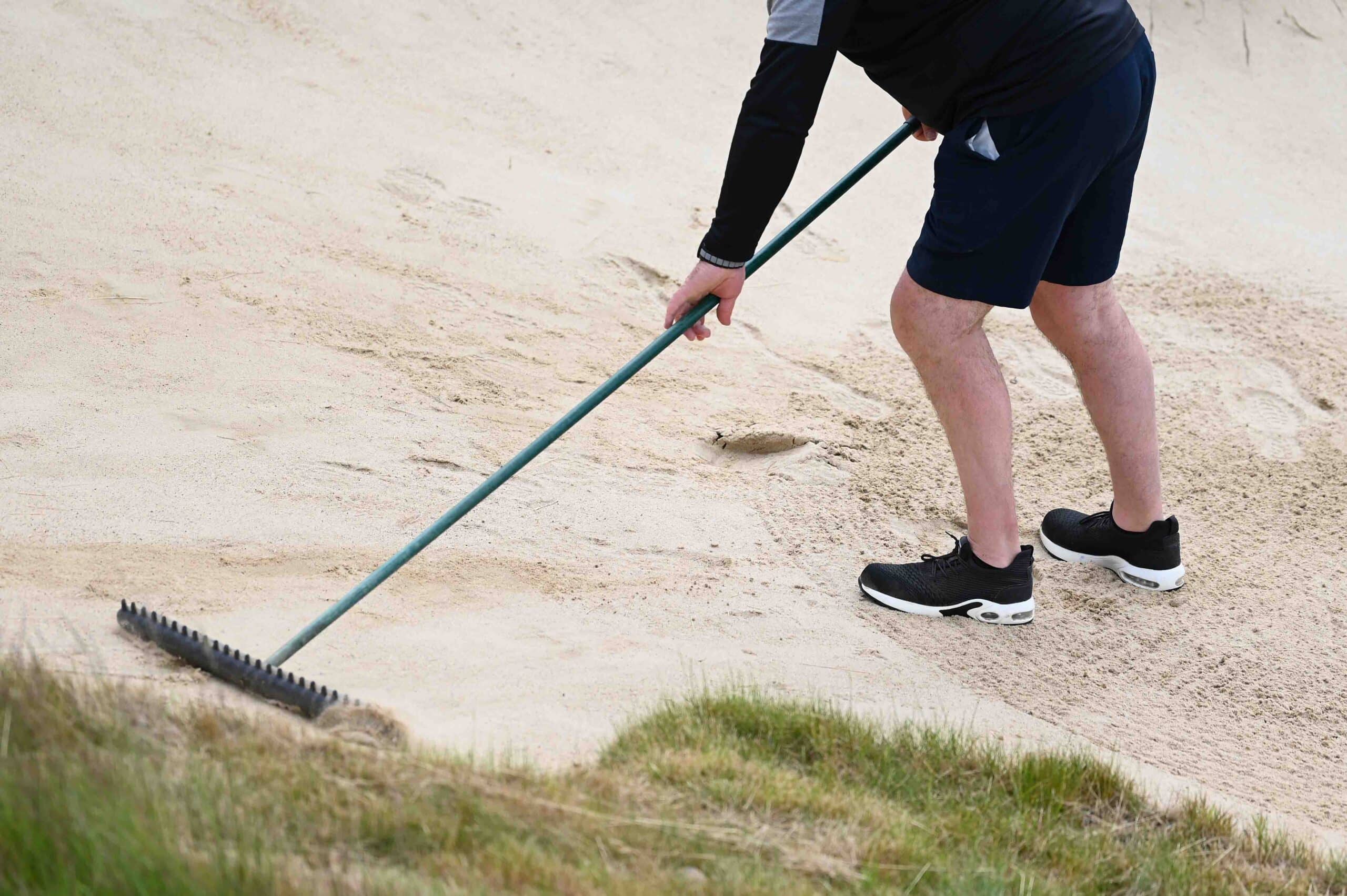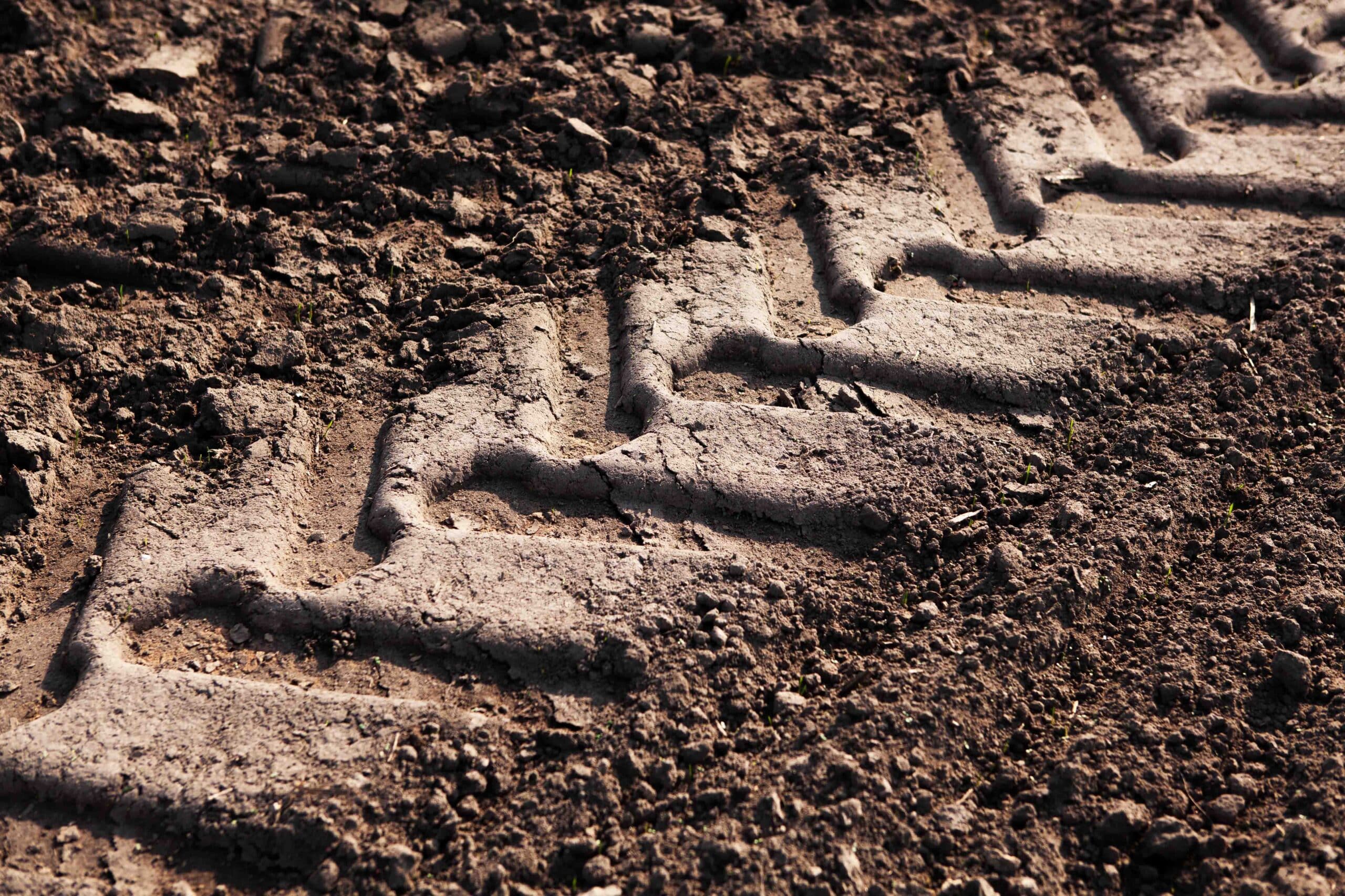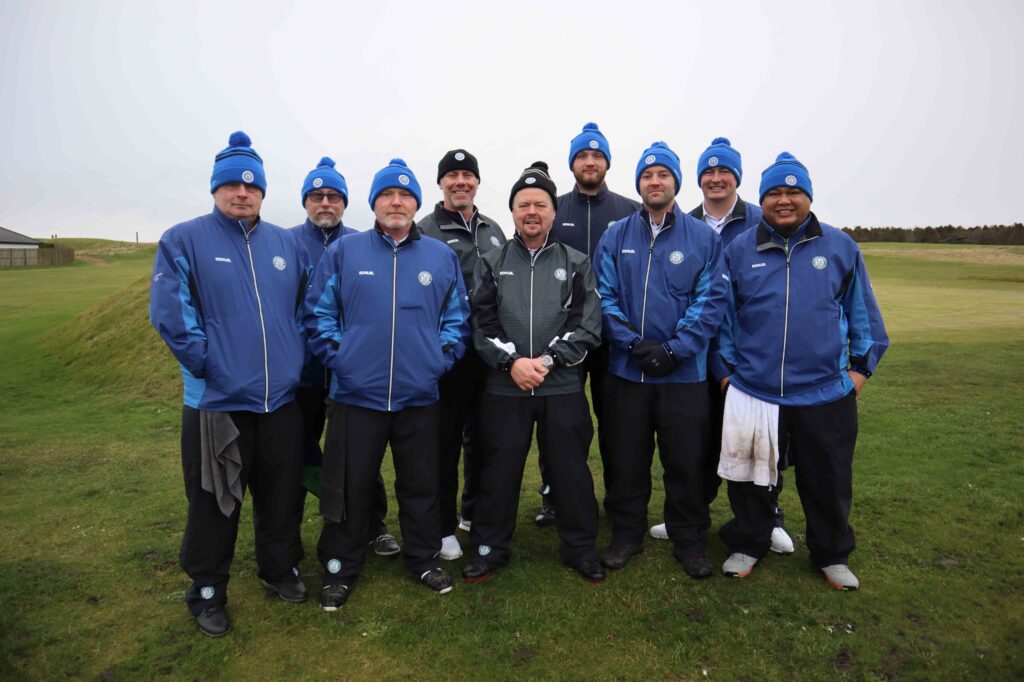
Scarred by the trauma of war, the former soldiers turning to golf to rebuild their lives
“The deep stuff they live with belongs to them,” says Don Snyder as he gazes at the seven men in blue leading their golfers round the short course at Elie Sports Club.
“The fear I have is I’ll let them down in some way. I’ve taken them far from their support systems, from the counselling and therapy they go through, to bring them here as strangers and put them together in one house. I worry all the time the storms that are raging inside them will get worse.”
But watching the septet closely you’re left only with hope.
The banter and the easy smiles emanating freely, from men once broken by battle, shows the power of golf to transform lives – and the Caddie School for Soldiers to deliver it.
Snyder, the founder of the world’s first residential caddie school for ex-servicemen, a month-long intensive retreat that runs out of the Duke’s in St Andrews, has never been to war.
The novelist and screenwriter understands like few others, though, the bonds of brotherhood. His life was built on them.
“The fathers of my boyhood were all those World War 2 guys. My dad was one of them. He’d gone off to war when he was 18 – it was the first time he’d ever left home – and he came back and married the only girl he ever loved.
“Her name was Peggy. She was 18. They got married, had twin boys, and she died 16 days later.
“I was one of those twin boys. My dad was shattered by her death and he spent most of the autumn sleeping on her grave.
“Over the years, he told me it was the boys he’d gone to war with who’d take turns coming by in the morning, picking him up and taking him to the coffee shop – just to try and get him to talk through his grief. He said they had saved his life.”
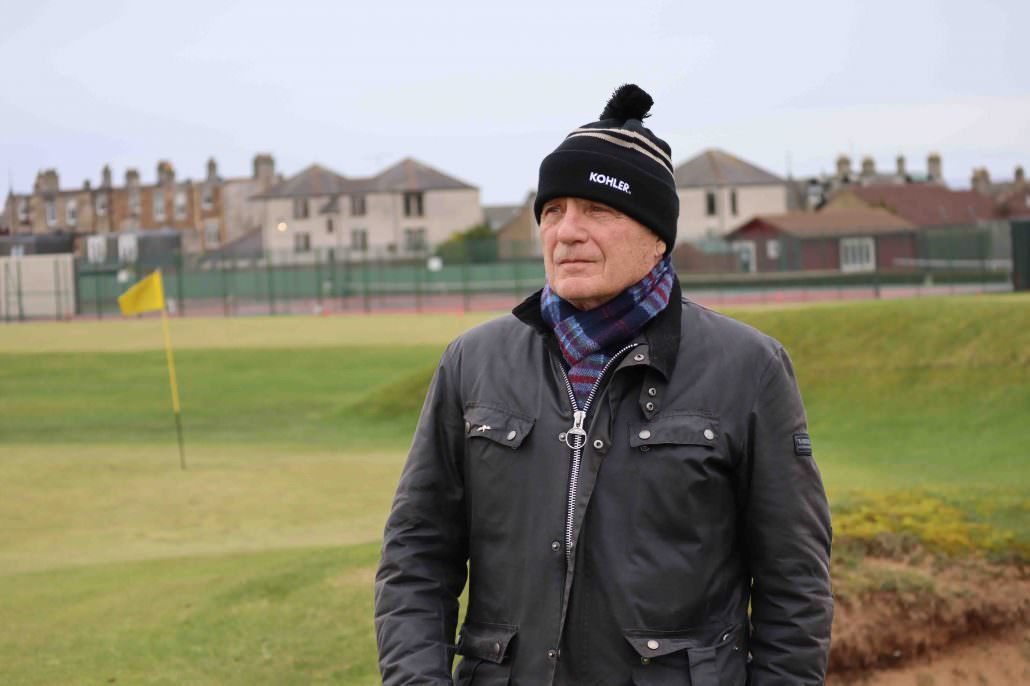
Shortly after Snyder’s father died, he arrived in St Andrews in 2008 to learn how to be a caddie – aiming to fulfil a promise he’d made to son Jack that if he was ever in a position to play professionally, he’d carry for him.
There, rocked by grief and the transition of a family coming of age, he was lost. He found purpose in a bib and a bag.
“Every day I was out on a golf course, there was the restorative power of golf. You are concentrating so hard on every shot your golfer makes that you get to leave your story behind and enter that person’s.
“It was healing for me. I gained belief in myself by earning the trust of the golfer I was out with.”
Snyder caddied at Kingsbarns and St Andrews and kept his promise to his boy. What really struck him was the loyalty and kinship that existed between the men and women that toured the links.
So when he read harrowing tales of soldiers coming back from combat with Post Traumatic Stress Disorder, and those taking their own lives, he wondered whether the shared experiences that defined the caddies of Scotland could help these veterans.
“I thought soldiers had the perfect qualities to be great caddies,” he says. “The fellows who have served in these wars form some very deep relationships with each other. They’re a band of brothers.
- Related: One man’s goal to play the world’s top 100 courses
- Related: Where does Kingsbarns feature in GB&I’s top 100 courses?
- Related: Check out our list of Scotland’s Top 100
“The World War 2 fighters came back to a community that had all, in one way or another, been intimately involved in the war. They had lost loved ones.
“These boys, though, came back to a country where very few people have any understanding of what they’ve been through.”
So Snyder called in the favours. He enlisted Davy Gilchrist, the former caddie master at Kingsbarns who had given him his break more than a decade ago.
He roped in David Scott, the PGA professional who’s taken on the general manager’s job at the new Dumbarnie Links, and found Jimmie James, the top 100 nomad who was hoping Snyder could help him write a book about his year on the road.
His contact with all of them had either been fleeting or forgotten. But when he wrote, they all signed up.
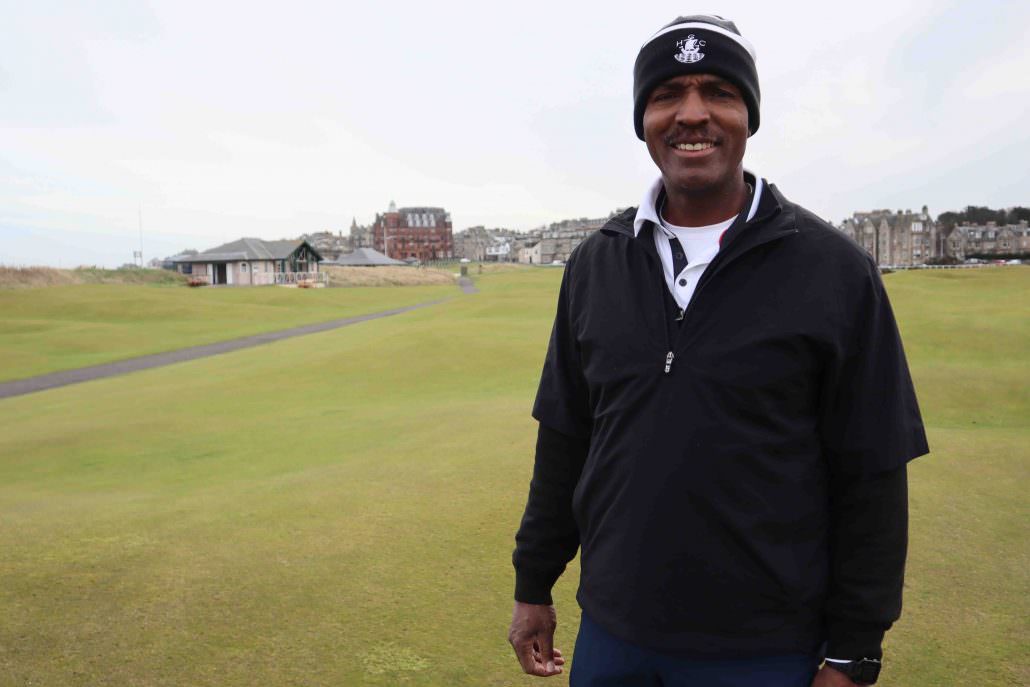
“Every soldier that goes to war dies,” James says when considering why he so urgently became involved. “They leave a piece of themselves behind – some of them completely and some partially.
“We’ve been at war now for 19 years. Most days, people don’t even think about that. Only a handful of people, from the UK, Canada, and US, are affected. They and their families think about it every day.
“Most of us just go about living our lives. We can do that because of the sacrifices they are making.
“There were 4,600 casualties on the battlefield in those 19 years. More than that, every single year, are killing themselves. Twenty to 25 soldiers and veterans a day are committing suicide.
“If there was a battle today in Afghanistan and one soldier died it would be all over the news. The Caddie School for Soldiers is there to help these broken soldiers regain their sense of belonging and their sense of purpose.
“A caddie has about two to three holes to gain the trust of their golfer. For the soldiers, that’s a mission. They know what their mission is that day. They can relate to it.
“What I see, what drives their transition, is those guys starting to feel they belong again – that they have a purpose and they are part of a community. That feeling is healing and transformational. They’re looking forward to life again.”
Six soldiers assembled a year ago and spent day and night for a month learning the art of being a caddie.
“We train them for everything – where to stand, how to get along with their golfer, how to assess their golfer’s needs,” explains Snyder. “This is a game that’s really a lesson in humility for almost everyone who plays it.
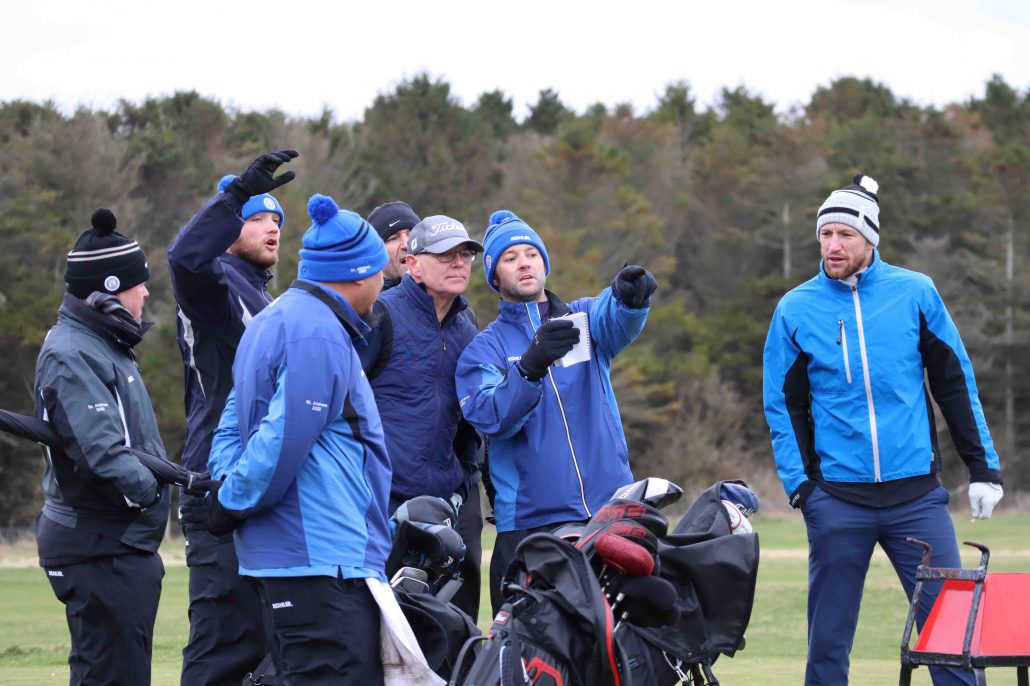
“They learn how to talk with them, how to not talk to them, when to give them time to be alone, how to read putts, how to play this game in the wind. How to carry a tiny little towel, stuffed inside all your clothes, so when it rains you can keep the grips dry. There are probably 100 small things.
“Some of these guys have suffered traumatic brain injury, so here’s something we practise: ‘I’m going to carry on a conversation with you while you are counting paces under your breath. Talk to me while you are counting, so when we get up to your ball you’ll be able to say ‘137 yards to the front of a green’. While you are counting, we are going to be talking.’ It’s very difficult but you learn it by doing it again and again.
“They’re naturals as shepherds, though, leading someone across ground, avoiding hazards and danger.”
The results of that first foray were astonishing. “On the final night, one of the wives came up to me,” remembers Scott. “Her husband had been injured by an IED and she said, ‘What you’ve done for my husband this month has been life-changing.’
“With tears in her eyes, ‘You’ve brought him back to me. He was a different person when he came back from Afghanistan but I’m looking at the same person that left, not the guy who came back.’
“One of the group put a picture of himself on Facebook smiling. One of his buddies somewhere said, ‘What’s happened to you? You’re smiling.’ It’s that ability to change lives.”
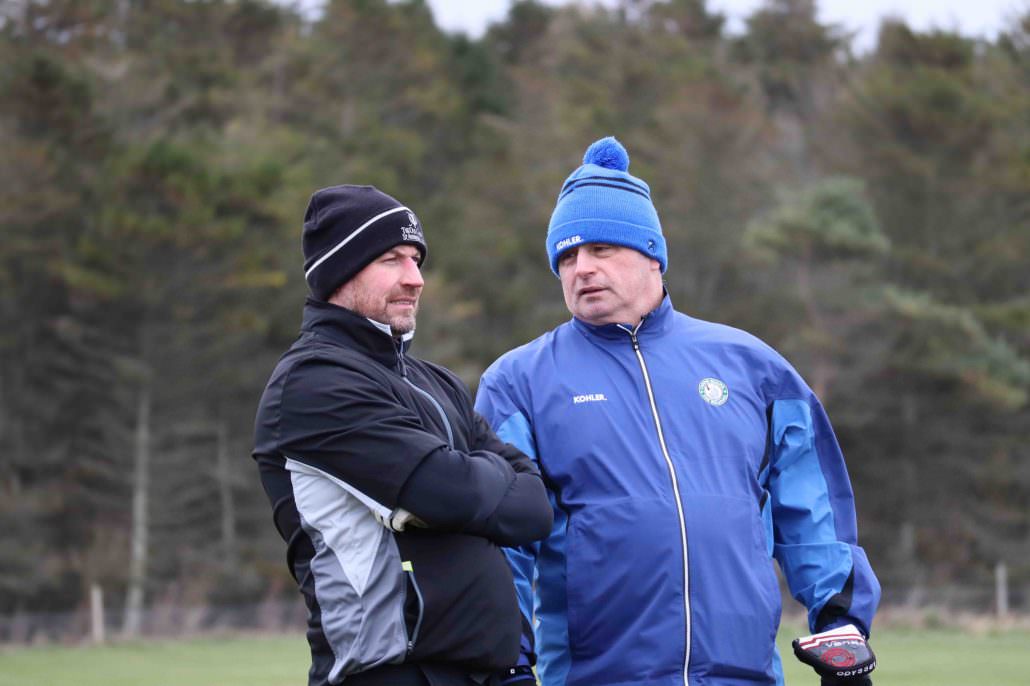
It made such a difference that Snyder, Scott and Gilchrist have been hosting seven more former soldiers from the USA, UK and Canada in a second session throughout February.
The month begins slowly, and cautiously. They’re trying to build up confidence and that begins with little steps.
“When we first meet, I ask them to write on a post-it note how they are feeling,” Scott says of the introductions. “A lot will be nervous, or very anxious, or overwhelmed.
“I’ll put those on a board and say, ‘Here’s what Davy and I are here to do. We’re going to create a safe environment for you, so you can feel good about being here. We’re going to have a lot of fun.’
“When you’re fighting wars in far-off places, you are with a buddy, you’re with a person who is going to be beside you whatever it takes and is going to be by your side – looking after your back.
“On the golf course, it’s not too dissimilar. You meet this person on the 1st tee, you are working as a team and you’re getting round that golf course with damage limitation.
“You are working together and you’ve got that partnership. It all comes down to the trust element. You can really impact on this person’s enjoyment of the game.”
Troy Killingbeck’s life was so transformed as one of the inaugural six he returned this year to mentor the new group and bridge the gap between those who had served and the instructors who hadn’t.
“It was an excellent way to get out of the darkness, for lack of a better term,” the Canadian explains when trying to sum up what the programme meant to him.
“Clarity of thought can become a bit of an issue. You feel like you are failing at everything – being late on a phone bill can tend to snowball into catastrophic thought.
“I wasn’t a big golfer but I still knew St Andrews was a magical place, so to come and go through the programme was outstanding.
“Golf is a magical game. It can be ruinous, too. It can build a man and tear him down in three holes. But, at the same time, it is still a challenge.
“The biggest benefit I find is that the hustle and bustle, the noise and confusion of every day life, you can turn that off and put it in the background for a little bit and have fun and four hours of banter.”
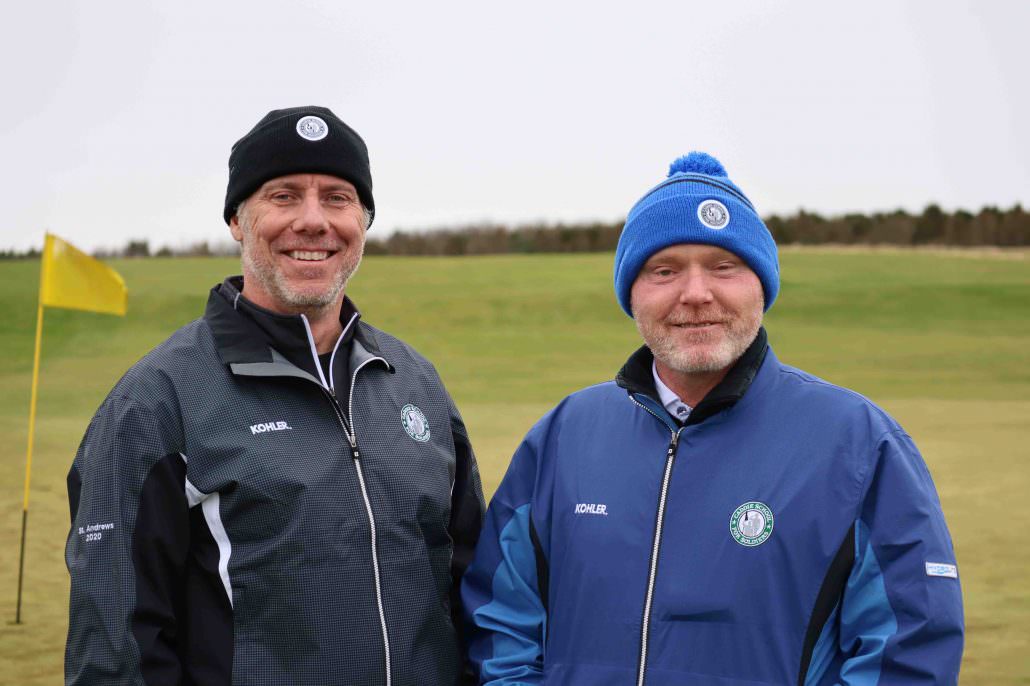
That gets a nod from Scotsman Stuart Beaton, who spent 23 years in the Army and asked to come onto the Caddie School for Soldiers after seeing the positive impact it had on last year’s group.
“I was in the Army and so I went to all the nice places they could send you,” he says. “There’s been a massive change in me. I’m quite an outgoing person with people I know but, if I don’t know them, I can seem quite arrogant and not want to know and stay in the background.
“I started becoming a big worrier about small problems. The course is teaching me that I’ve got something to put in, that someone is going to listen to me. I’ve got a bit of knowledge to pass on again and it’s having the confidence to do that.
“I was ready to leave the military and when I first came out in 2011 things were great for the first 18 months. I knew I had changed on my last tour out in Iraq in 2007, but inwardly I wasn’t admitting it to myself.
“Slowly, over the following years, I was noticing my behaviour was getting worse. Not in a bad way, but it was degrading to me and making me worse with people around me.
“It wears you down slowly, until you hit a sudden point where it’s ‘I really need to do something about this’.
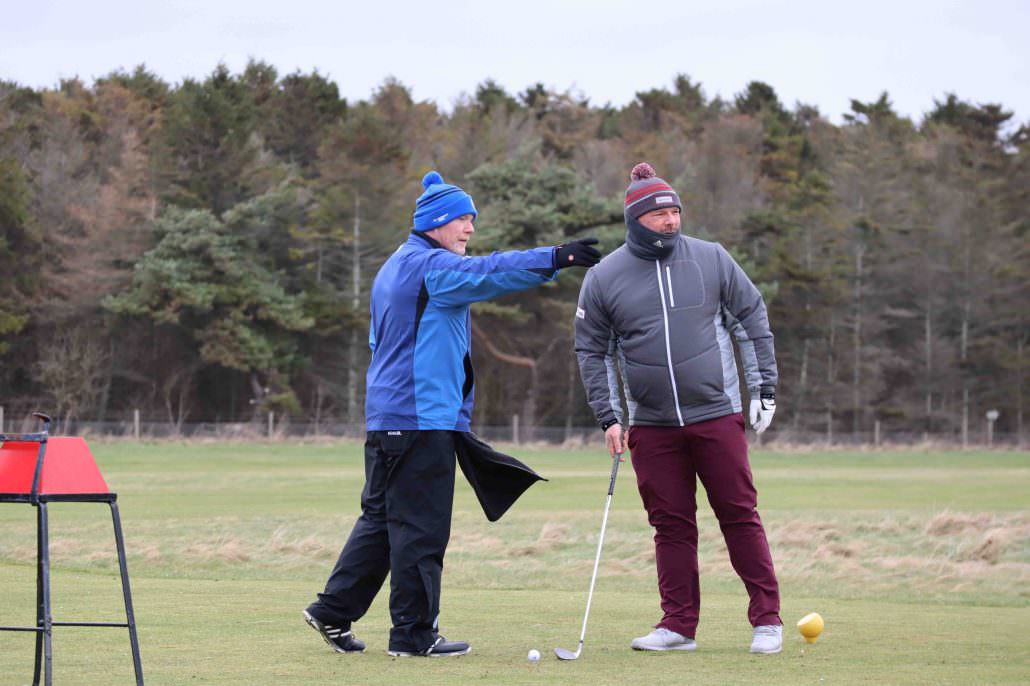
“I sought help through Combat Stress and that really helped me out. I’ve always loved the game of golf and when I was playing in the military that maybe kept some symptoms below the surface. I was happy because I was on the course and it was helping me.
“I’m more confident in myself. People who know me, or work with me, find that a silly statement because I’m outgoing with them.
“But guys ask me if I’ll come out for a pint and I’ll make my excuses not to. Or I’ll say I’ll go but not turn up.
“I don’t mind people trusting in me now whereas, before, I didn’t like a lot of trust being put in me. I don’t want to let people down.”
That’s what Beaton and Snyder have in common. But as the latter sees the transformation in people who weeks earlier could barely bring themselves to discuss what happened to them, and whose future appeared uncertain, what he mostly feels is gratitude.
“I can see it in their eyes. I can remember going through that time in my life when I had no belief in myself. I was lost and was brought back to life working as a caddie.
“I’ve never been a soldier but I know the ground that they are standing on in a way. You see them out there smiling and gaining confidence in themselves and, for me, it’s a privilege to work with them.
“It’s gratitude. That these guys would trust in me. That they believed and trusted to come so far away.”
Visit the Caddie School for Soldiers website for more details, or find them on Twitter.
Steve Carroll

A journalist for 25 years, Steve has been immersed in club golf for almost as long. A former club captain, he has passed the Level 3 Rules of Golf exam with distinction having attended the R&A's prestigious Tournament Administrators and Referees Seminar.
Steve has officiated at a host of high-profile tournaments, including Open Regional Qualifying, PGA Fourball Championship, English Men's Senior Amateur, and the North of England Amateur Championship. In 2023, he made his international debut as part of the team that refereed England vs Switzerland U16 girls.
A part of NCG's Top 100s panel, Steve has a particular love of links golf and is frantically trying to restore his single-figure handicap. He currently floats at around 11.
Steve plays at Close House, in Newcastle, and York GC, where he is a member of the club's matches and competitions committee and referees the annual 36-hole scratch York Rose Bowl.
Having studied history at Newcastle University, he became a journalist having passed his NTCJ exams at Darlington College of Technology.
What's in Steve's bag: TaylorMade Stealth 2 driver, 3-wood, and hybrids; TaylorMade Stealth 2 irons; TaylorMade Hi-Toe, Ping ChipR, Sik Putter.


